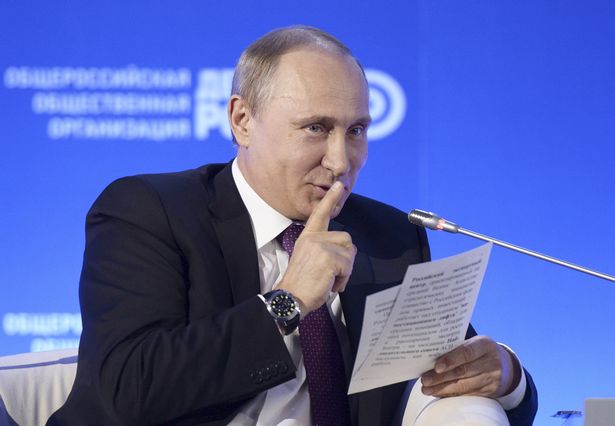Funny to see an old McCarthy apologist like Pat Buchannan or recent Putin-puncher like Newt Gingrich embrace the tool of the Kremlin that now occupies the Oval Office. Political expediency can reveal who actually has a moral center and who’s always been playing games.
From early in the campaign, when Trump mocked our POWs and praised Russia’s autocrat, it was clear where he stood. The question is why this behavior wasn’t disqualifying to the nearly 63 million citizens who voted for him. Certainly the pockets of the country still hurting from the financial collapse had an effect as did the machinations of Julian Assange and James Comey, but it seems fairly clear that the barely veiled promise of making America white again activated a lot of racist feelings that had always been there. People are clearly willing to sacrifice an awful lot for a feeling of superiority.
Over the weekend, when Trump defended Putin by pointing out that the U.S also has a lot of murderers–even saying “You think our country’s so innocent?”–he elided the fact that unlike Putin, American Presidents never kill political adversaries or journalists, let alone do so routinely. If the orange supremacist lasts four years, though, we may become much more like the Russia thugocracy than even the most mouth-foaming McCarthy-ite could have ever imagined.
The opening of “A Poisoning in Moscow” in the Wall Street Journal:
In 2015 a prominent Russian opposition activist named Vladimir Kara-Murza inexplicably suffered multiple organ failure and barely survived after falling into a coma for nearly a week. On Thursday it happened to him again, in much the same way. Since this happened in Moscow, we assume the explanation isn’t innocent.
Mr. Kara-Murza, 35, is a former journalist who worked for a Russian TV station in Washington until he was fired from his job in 2012. That year he testified before the U.S. Congress in favor of the Magnitsky Act, which places financial sanctions and travel bans on corrupt Russian officials. Mr. Kara-Murza described the law as a “pro-Russian bill which provides a much-needed measure of accountability for those who continue to violate the rights and freedoms of Russian citizens.”
That could not have endeared him to the Kremlin. Nor could his close association with Boris Nemtsov, the Russian opposition politician who was assassinated near the Kremlin in February 2015. Three months later Mr. Kara-Murza became ill after eating lunch at a restaurant. He told CNN that “there is no other possible reason” than politics for his poisoning.•

